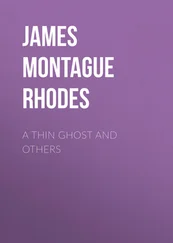John Bangs - The Water Ghost and Others
Здесь есть возможность читать онлайн «John Bangs - The Water Ghost and Others» — ознакомительный отрывок электронной книги совершенно бесплатно, а после прочтения отрывка купить полную версию. В некоторых случаях можно слушать аудио, скачать через торрент в формате fb2 и присутствует краткое содержание. Жанр: foreign_prose, foreign_antique, на английском языке. Описание произведения, (предисловие) а так же отзывы посетителей доступны на портале библиотеки ЛибКат.
- Название:The Water Ghost and Others
- Автор:
- Жанр:
- Год:неизвестен
- ISBN:нет данных
- Рейтинг книги:5 / 5. Голосов: 1
-
Избранное:Добавить в избранное
- Отзывы:
-
Ваша оценка:
- 100
- 1
- 2
- 3
- 4
- 5
The Water Ghost and Others: краткое содержание, описание и аннотация
Предлагаем к чтению аннотацию, описание, краткое содержание или предисловие (зависит от того, что написал сам автор книги «The Water Ghost and Others»). Если вы не нашли необходимую информацию о книге — напишите в комментариях, мы постараемся отыскать её.
The Water Ghost and Others — читать онлайн ознакомительный отрывок
Ниже представлен текст книги, разбитый по страницам. Система сохранения места последней прочитанной страницы, позволяет с удобством читать онлайн бесплатно книгу «The Water Ghost and Others», без необходимости каждый раз заново искать на чём Вы остановились. Поставьте закладку, и сможете в любой момент перейти на страницу, на которой закончили чтение.
Интервал:
Закладка:
"Do not! Do not do so, I beg!" cried the ghost. "Let me move on. I feel myself growing rigid as it is. If we stop here, I shall be frozen stiff."
"That, madam," said the master slowly, and seating himself on an ice-cake—"that is why I have brought you here. We have been on this spot just ten minutes, we have fifty more. Take your time about it, madam, but freeze, that is all I ask of you."
"I cannot move my right leg now," cried the ghost, in despair, "and my overskirt is a solid sheet of ice. Oh, good, kind Mr. Oglethorpe, light a fire, and let me go free from these icy fetters."
"Never, madam. It cannot be. I have you at last."
"Alas!" cried the ghost, a tear trickling down her frozen cheek. "Help me, I beg. I congeal!"
"Congeal, madam, congeal!" returned Oglethorpe, coldly. "You have drenched me and mine for two hundred and three years, madam. To-night you have had your last drench."
"Ah, but I shall thaw out again, and then you'll see. Instead of the comfortably tepid, genial ghost I have been in my past, sir, I shall be iced-water," cried the lady, threateningly.
"No, you won't, either," returned Oglethorpe; "for when you are frozen quite stiff, I shall send you to a cold-storage warehouse, and there shall you remain an icy work of art forever more."
"But warehouses burn."
"So they do, but this warehouse cannot burn. It is made of asbestos and surrounding it are fire-proof walls, and within those walls the temperature is now and shall forever be 416 degrees below the zero point; low enough to make an icicle of any flame in this world—or the next," the master added, with an ill-suppressed chuckle.
"For the last time let me beseech you. I would go on my knees to you, Oglethorpe, were they not already frozen. I beg of you do not doo—"
Here even the words froze on the water ghost's lips and the clock struck one. There was a momentary tremor throughout the ice-bound form, and the moon, coming out from behind a cloud, shone down on the rigid figure of a beautiful woman sculptured in clear, transparent ice. There stood the ghost of Harrowby Hall, conquered by the cold, a prisoner for all time.
The heir of Harrowby had won at last, and to-day in a large storage house in London stands the frigid form of one who will never again flood the house of Oglethorpe with woe and sea-water.
As for the heir of Harrowby, his success in coping with a ghost has made him famous, a fame that still lingers about him, although his victory took place some twenty years ago; and so far from being unpopular with the fair sex, as he was when we first knew him, he has not only been married twice, but is to lead a third bride to the altar before the year is out.
THE SPECTRE COOK OF BANGLETOP
I
For the purposes of this bit of history, Bangletop Hall stands upon a grassy knoll on the left bank of the River Dee, about eighteen miles from the quaint old city of Chester. It does not in reality stand there, nor has it ever done so, but consideration for the interests of the living compels me to conceal its exact location, and so to befog the public as to its whereabouts that its identity may never be revealed to its disadvantage. It is a rentable property, and were it known that it has had a mystery connected with it of so deep, dark, and eerie a nature as that about to be related, I fear that its usefulness, save as an accessory to romance, would be seriously impaired, and that as an investment it would become practically worthless.
The hall is a fair specimen of the architecture which prevailed at the time of Edward the Confessor; that is to say, the main portion of the structure, erected in Edward's time by the first Baron Bangletop, has that square, substantial, stony aspect which to the eye versed in architecture identifies it at once as a product of that enlightened era. Later owners, the successive Barons Bangletop, have added to its original dimensions, putting Queen Anne wings here, Elizabethan ells there, and an Italian-Renaissance facade on the river front. A Wisconsin water tower, connected with the main building by a low Gothic alleyway, stands to the south; while toward the east is a Greek chapel, used by the present occupant as a store-room for his wife's trunks, she having lately returned from Paris with a wardrobe calculated to last through the first half of the coming London season. Altogether Bangletop Hall is an impressive structure, and at first sight gives rise to various emotions in the aesthetic breast; some cavil, others admire. One leading architect of Berlin travelled all the way from his German home to Bangletop Hall to show that famous structure to his son, a student in the profession which his father adorned; to whom he is said to have observed that, architecturally, Bangletop Hall was "cosmopolitan and omniperiodic, and therefore a liberal education to all who should come to study and master its details." In short, Bangletop Hall was an object-lesson to young architects, and showed them at a glance that which they should ever strive to avoid.
Strange to say, for quite two centuries had Bangletop Hall remained without a tenant, and for nearly seventy-five years it had been in the market for rent, the barons, father and son, for many generations having found it impossible to dwell within its walls, and for a very good reason: no cook could ever be induced to live at Bangletop for a longer period than two weeks. Why the queens of the kitchen invariably took what is commonly known as French leave no occupant could ever learn, because, male or female, the departed domestics never returned to tell, and even had they done so, the pride of the Bangletops would not have permitted them to listen to the explanation. The Bangletop escutcheon was clear of blots, no suspicion even of a conversational blemish appearing thereon, and it was always a matter of extreme satisfaction to the family that no one of its scions since the title was created had ever been known to speak directly to any one of lesser rank than himself, communication with inferiors being always had through the medium of a private secretary, himself a baron, or better, in reduced circumstances.
The first cook to leave Bangletop under circumstances of a Gallic nature—that is, without known cause, wages, or luggage—had been employed by Fitzherbert Alexander, seventeenth Baron of Bangletop, through Charles Mortimor de Herbert, Baron Peddlington, formerly of Peddlington Manor at Dunwoodie-on-the-Hike, his private secretary, a handsome old gentleman of sixty-five, who had been deprived of his estates by the crown in 1629 because he was suspected of having inspired a comic broadside published in those troublous days, and directed against Charles the First, which had set all London in a roar.
This broadside, one of very few which are not preserved in the British Museum—and a greater tribute to its rarity could not be devised—was called, "A Good Suggestion as to ye Proper Use of ye Chinne Whisker," and consisted of a few lines of doggerel printed beneath a caricature of the king, with the crown hanging from his goatee, reading as follows:
"Ye King doth sporte a gallous grey goatee
Uponne ye chinne, where every one may see.
And since ye Monarch's head's too small to holde
With comfort to himselfe ye crowne of gold,
Why not enwax and hooke ye goatee rare,
And lette ye British crown hang down from there?"
Whether or no the Baron of Peddlington was guilty of this traitorous effusion no one, not even the king, could ever really make up his mind. The charge was never fully proven, nor was De Herbert ever able to refute it successfully, although he made frantic efforts to do so. The king, eminently just in such matters, gave the baron the benefit of the doubt, and inflicted only half the penalty prescribed, confiscating his estates, and letting him keep his head and liberty. De Herbert's family begged the crown to reverse the sentence, permitting them to keep the estates, the king taking their uncle's head in lieu thereof, he being unmarried and having no children who would mourn his loss. But Charles was poor rather than vindictive at this period, and preferring to adopt the other course, turned a deaf ear to the petitioners. This was probably one of the earliest factors in the decadence of literature as a pastime for men of high station.
Читать дальшеИнтервал:
Закладка:
Похожие книги на «The Water Ghost and Others»
Представляем Вашему вниманию похожие книги на «The Water Ghost and Others» списком для выбора. Мы отобрали схожую по названию и смыслу литературу в надежде предоставить читателям больше вариантов отыскать новые, интересные, ещё непрочитанные произведения.
Обсуждение, отзывы о книге «The Water Ghost and Others» и просто собственные мнения читателей. Оставьте ваши комментарии, напишите, что Вы думаете о произведении, его смысле или главных героях. Укажите что конкретно понравилось, а что нет, и почему Вы так считаете.












